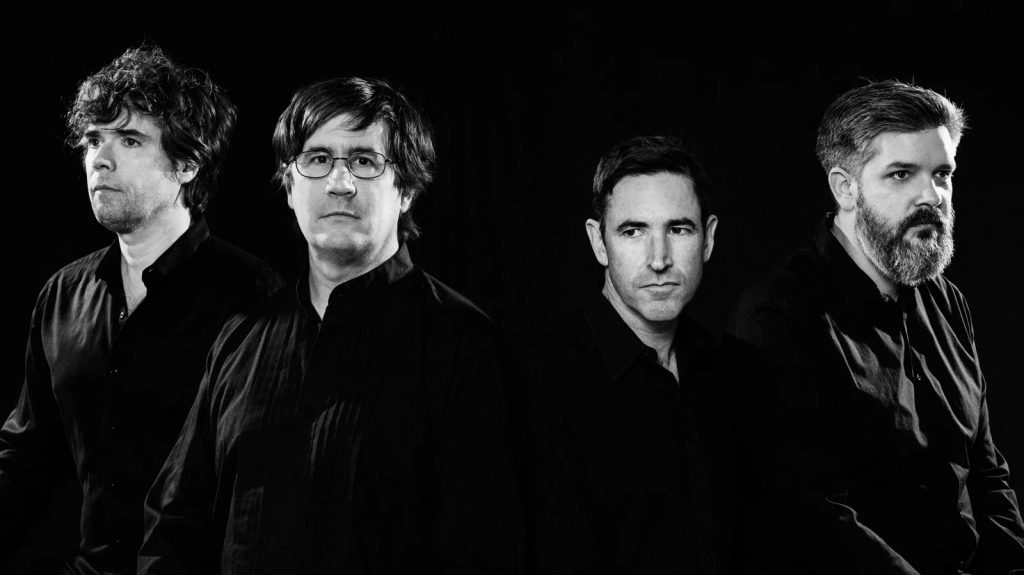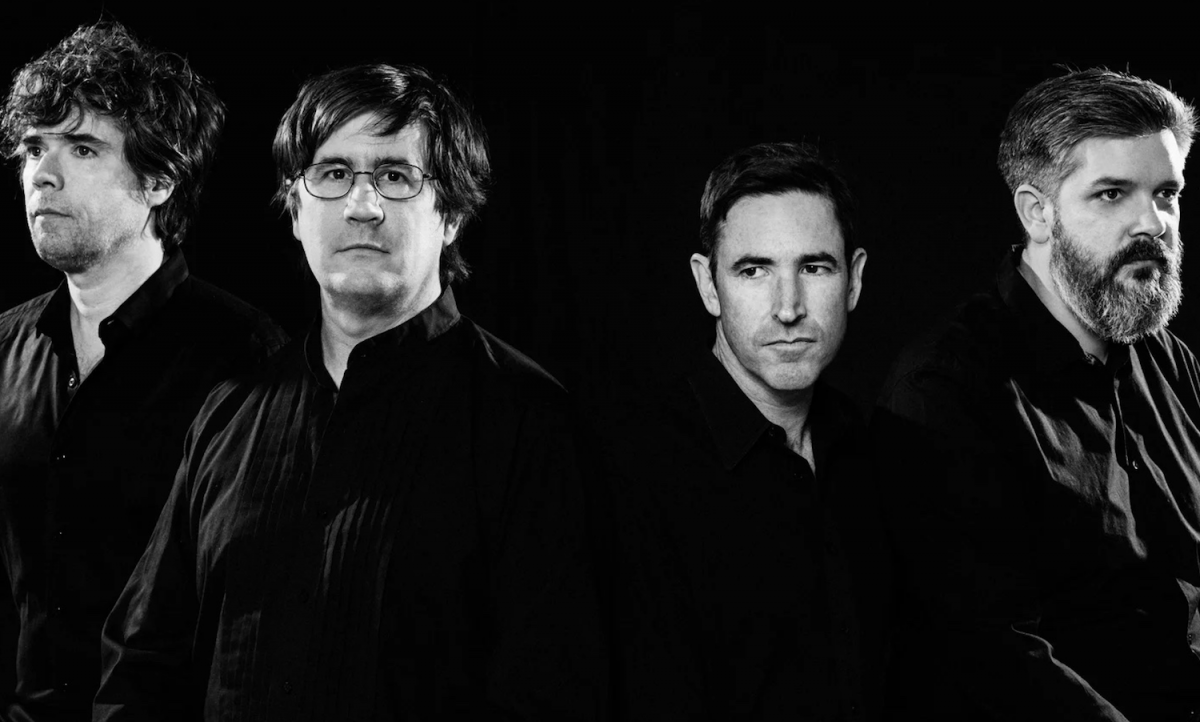
The Mountain Goats explore goth culture (including unicorns) on their new album.
It all started with Andrew Eldritch, the lead singer of the Sisters Of Mercy. While on vacation with his wife and two kids, the Mountain Goats’ John Darnielle wrote part of a song about the lead singer of the ’80s goth band that told a story of Eldritch returning to his hometown of Leeds only to be met with “indifference.” Darnielle filed it away and forgot about it for several months. One day, in his home office in Durham, N.C., he came across it again. In order to avoid distracting his young son by picking up his guitar, Darnielle began to work on the song on his electric piano. After he wrote another piano-based song, using the same Fender Rhodes setting, he had a flash of inspiration.
“Then immediately—this is the way my mind goes—I thought: What if there’s not guitar on the album? And in my gut, down in my spirit, I thought, ‘Oh, yeah! That would be great,’” says Darnielle. “And I immediately thought of some fairly unglamorous things, like, ‘Wow, when we fly to the studio to record the album, I wouldn’t have to take any of my guitars and put them under the plane. I wouldn’t have to pick ones I was going to take. I wouldn’t even have to tune any guitars!’”
The eventual result: Goths, the umpteenth Mountain Goats album, recorded with longtime bassist Peter Hughes, drummer Jon Wurster and new full-time member Matt Douglas on woodwinds. Darnielle plays a Fender Rhodes and, on one song, piano (he took lessons as a kid, and his father played jazz piano), but no guitar, which may seem an odd choice for an album about goth bands and goth culture.
Darnielle has written songs about music and musicians before—“The Best Ever Death Metal Band In Denton,” “Song For Dennis Brown”—without mimicking the music itself. He likes the friction between form and content—in this case, gently orchestrated, keyboard-based songs about goth bands and the fans who (used to) love them.
“There’s a very mild aesthetic tension about crossing the boundaries, as if you were writing poetry about novels or writing novels about poetry,” he says. “There’s a little bit of chiasmus there that’s interesting; there’s a crossing of streams.” Aside from the glorious New Order bass line that drives the coda of “Shelved,” the period allusions are lyrical rather than musical. Goths is the Mountain Goats’ most spacious record, notwithstanding the appearance of a dramatic 16-member choir on “Rain In Soho.”
Asked how much research he needed to do in writing songs that reference bands such as Gene Loves Jezebel, Siouxsie and The Banshees and Bauhaus, and depict fans who obsessively “Wear Black” and claim “I’m hardcore, but I’m not that hardcore,” Darnielle rephrases the question. “Are you asking me was I goth? I kinda was, but as with everything I ever did as far as that kind of engagement, it was up to my hips but not past my chest. I liked the term ‘death rock’—I thought that was great. Goth is kind of weird, because do goths really want to read Emily Brontë? Maybe. I don’t. I’m sure she’s fine, but the death-rock types were super into 19th century Parisian stuff and surrealism and stuff like that.”
In his “goth/death rock” heyday in the mid-’80s, Darnielle saw shows by Christian Death, the Sisters Of Mercy, Peter Murphy and the Cure. “The Cure counts for all goths,” he says. “The other thing about the Cure is that they’re so good, they transcend all that. If you can’t get down with the Cure, at least through Kiss Me, Kiss Me, Kiss Me, what is wrong with you?”
Only three of the 12 songs are overtly autobiographical, although Darnielle, who has recently published two acclaimed novels, admits, “There’s a lot of bleeding in and out of self-reference and fiction for me.” One of the autobiographical ones is the enigmatically titled “Unicorn Tolerance.” It tells a story of an existential crisis, of the conflict between the allure of the destructive and lurid and the perhaps more difficult faith in empathy and goodness.
“Along with ‘Wear Black,’ it’s about my time in Portland when I was at my peak goth look,” says Darnielle. “I wore dark sunglasses everywhere. It wasn’t really a pose: I was in a pretty intense state of mind, into hard drugs. I was on the cusp of deciding whether I wanted to be a decent person or not. It’s not something you think about every day. It’s the little decisions you make: what you’re going to stop doing; what you decide is you. I was taking heroin and speed, intravenously. I was not a person you would recognize if you know my stuff or if you know me from my shows or having shaken my hand or whatever.
“‘Unicorn Tolerance’ is about how, when I was debating whether to become a death-obsessed cynical person, I also still was drawn to unicorns, the gentle unicorn. The unicorn is an image of peacefulness and curiosity and goodness: The unicorn is good. My girlfriend at the time gave me a coffee mug with a unicorn on it. I had been so into unicorns when I was 11. But 18-year-old me looked at the unicorn and sort of smirked a bit. ‘I’m more into darker shit now,’ I thought in my head. Then I immediately felt, ‘Do you really want to be the guy looking down his nose at the gentle unicorn?’ It was a moment for me, which I didn’t resolve at the time. I remained this pretty disagreeable dark dude for a time. But eventually there came a time: I side with the unicorn, in the end.”
—Steve Klinge






